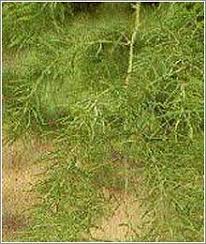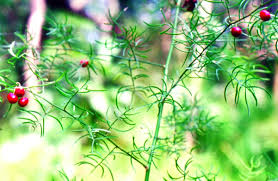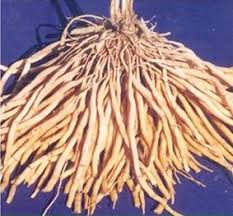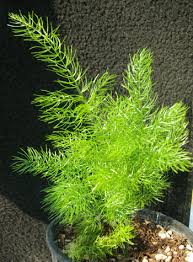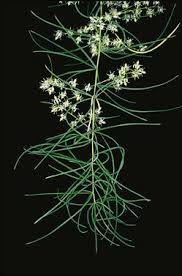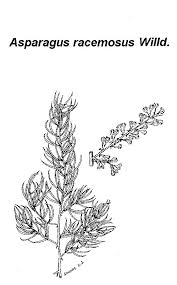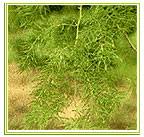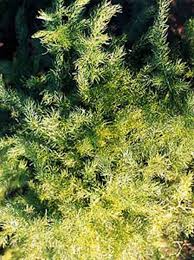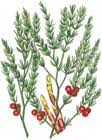VR1
(WE
ARE ONE)
+ve
NEWS
(C.M. Information Campus)
Information & Public Relations Department, U.P.
Decision to relax conditions fixed earlier
with regard to dearness allowance payment and
conversion of 50 per cent DA as dearness pay to the
employees of public sector enterprises/corporations
Lucknow : September 05, 2009
The Uttar Pradesh Government has taken the decision to
relax the conditions fixed earlier with regard to dearness allowance
payment and conversion of 50 per cent DA as dearness pay to the
employees of public sector enterprises/corporations. With the
implementation of this decision, the employees of public
enterprises/corporations will get the benefits of DA and 50 per
cent dearness pay timely.
Under the relaxed conditions fixed earlier, now the payment
of DA will be considered on the basis of financial capability after
balance sheet audited by the chartered accountant. So far, the
decision was being taken on the basis of audited balance sheet by
accountant general for the estimation of financial capability of
corporations/enterprises owing to which long period of time was
taken and even the competent corporations were not able to
provide DA instalments timely. Now, with this Government
decision, the employees of corporations/enterprises will get DA
instalments timely.
The Government has decided to constitute empowered
committee at the level of Public Enterprise Department in view of
saving the time with regard to sanctioning of DA. Now, the
concerning corporation/enterprise will send the proposal directly to
empowered committee passed by their board and the committee
will take necessary decision in this connection. This process would
save the time which was taken in getting the
recommendations/suggestions from different departments.
The Government has also decided that the employees of
those public sector enterprises/corporations would not get the
increased DA, on which the cabinet has taken the formal decision
of closing down.
———————- Employees of UP enterprises/corporations to get the
benefits of revised pay scales and other allowances
like State Government employees according to Sixth
Central Pay Commission recommendations
Lucknow : September 05, 2009
The Uttar Pradesh Government has taken the decision to give
the benefits of revised pay structure and other allowances with effect
from January 01, 2006 according to the recommendations of Sixth
Central Pay Commission to the employees of all
enterprises/corporations like State Government employees. The
benefits of revised pay scales and other allowances will be subject to
the economic capability of corporations and certain conditions.
This decision will benefit about 98,000 employees/officers of
public sector enterprises/corporations (except energy sector
undertakings). The burden of about Rs.305 crore additional annual
expenditure is estimated due to the implementation of this decision,
which would be borne out by enterprises/corporations themselves. No
Government assistance will be provided for it.
———————-
Maharashtra Elections | Mayawati, a serious player in Maharashtra Elections
Mayawati Zindabad! UP is not enough! Now Mayawati and her party, the
Bahujan Samaj Party is going all
out to promote their party in the upcoming Maharashtra Assembly elections.
Apparently, they want to revive the
Ambedkar movement of the Original Inhabitants of Jambudvipa; that is, the Great Prabuddha Bharath castes, scheduled castes and tribes and
give a voice to the faceless dregs of society. So, this amounts to
larger numbers for the BSP, as they will have many people to opt for
them in the rural areas and the underdeveloped areas in cities.
It’s just a matter of numbers. While
the Muslim vote will go to the Congress, the SC/STs votes will
now be divided, with the BSP claiming its stake in Maharashtra. Most
party leaders from other parties are in favour of the BSP, saying that
the party is suitable to govern in the present state that the state is
in.
So, the BSP leaders have given a go
ahead to all its candidates and the rest of the parties that they will
contest all 288 seats in Maharashtra. Some achievement this. Now,
Mayawati will rule even in a far off state like Maharashtra, with the
same gusto that she did in UP. So, what do we expect for the SC/STs in
Maharashtra?
ALMOST EVERY FRAUD involves
VICTIM
sending “CASH” money to a
Fraudster/Scammer.
ABSOLUTELY DO NOT send any money
using
Union
Always deal ONLY locally by meeting
the seller/buyer in person.
READ and UNDERSTAND the methods used
by Fraudsters in the link above
ONLINE TRAINING ON PRECEPTS AND TRADE-71
1
The Economic Hidden Agenda behind every
war
|
|
The
abuse of economic knowledge has beset our interactions with the economy all the
way from earning, to saving and expenditure — every step of the economic
process being vulnerable to those who respect no ethical guidelines. In spite
of this, western economics seems to turn a blind eye to ethical issues
surrounding the economic process. Ethical issues are often intentionally
overlooked under the pretext of being ‘objective’ — but alas, this leaves the door
open to all sorts of economic exploitation — and even though opponants might
never be threatened with knives or guns, the positioning that goes on behind
the scenes of the world economy is no less cruel than out-and-out aggression.
Economic exploitation in the present day has proliferated to the point that
entire populations of countries are forced into compromises that leaves them
strait-jacketed with regard to the appropriation of their own finances. This is
the reality of economic ‘colonization’ in many countries of the world even at
this very moment — and
is just one of many countries that seems to have become an economic plaything
to more dominant superpowers.
In response to obvious
injustice, it is hard to deny that understanding of economics attuned to
ethical values must start by addressing two issues:
- the
scrupulousness of how wealth is accrued - the
scrupulousness of those who accrue it
The
seriousness of economic exploitation, of course depends on how far people are
prepared to go to achieve their economic ends. Are they to kill each other or
does their conscience cause them to stop short of this merely at indirect
(political or diplomatic) pressure? In brief, it can be said that when
resources are acquired, hoarded or used unscrupulously, it soon leads to
conflict and chaos throughout the world. Insignificant incidences of
exploitation gradually exacerbate the burden of bitterness which eventually
stops short at nothing less than armed conflict.
The Economics of Exploitation
Having recognized the implications of economic exploitation (even without
knowing who is taking advantage of whom) we can start to appreciate that the
web of economic exploitation has become so complex that it is difficult to know
a beginning or an end of it. When one nation’s army turns its guns on another,
far from starting a war, they are the products of a war started long ago
through economic exploitation. In the absence of any ethical guidelines, when
any means seems justified by economic ends, it is no surprise that the
conflicts continue to escalate — violence has indeed proliferated to a point
where it is difficult to see how we personally can do anything to
ameliorate the situation, without remedies of a similarly large scale.
Condoning unethical economic
practices is to kindle the flames of war on our planet. Wars like the Crusades,
lasted for longer than a century — and upon first sight they might seem to
have been nothing more than a religious war between Christians and Moslems,
however, if examined in more depth, they turn out to have been the result of
badly organized economic policy admixed with incompatability of beliefs. If you
look beneath the surface of any other religious war which has broken out in
history, you will always find a hidden agenda of economic advantage behind the
conflict. It is only with the admixture of other elements that turns the
conflict into a war. If it wasn’t for economic difficulties, in spite of
differences of belief, why should different groups want to interrupt ‘business
as usual’? However, any day economic progress becomes obstructed and a
political tinder box doesn’t emerge spontaneously, it is not usually long
before ethnic and religious differences will provide the necessary spark. To
the uninitiated, of course it looks like a war motivated by ethnic or religious
conflict . . .
Even the battle for Ayutthaya had economic roots
Even the most famous invasion of Thailand in 1564 when the (then) capital of
Ayutthaya was sacked by the Burmese is popularly believed to have been a fight
over ‘royal white elephants’. The first invasion took place in the reign of
King Maha Chakrap’at. At that time the region of
and the present site of Wat Phra Dhammakaya. The populace were renowned for
elephant husbandry — especially elephants for use in royal service — and
several of these included the legendary ‘white elephants’. According to
eye-witness accounts, even as recently as fifty years ago, there was still a
large shallow pond in front of Wat Phra Dhammakaya, which previously was used
as a watering hole for the elephants of the vicinity. At that time, although
the whole area was densely forested, the presence of herds of elephants made
the area of strategic importance, because as well as being the royal
‘chargers’, trained elephants were the most indefatiguable ‘machines of war’
(equivalent to the modern-day tanks).
The news of the abundance of
elephants reached the ears of King Bayinnaung of
for a pair of ‘white elephants’ for himself in 1563.
|
|
Of course
never agree to part with any white elephants — and that was known full well in
advance by King Bayinnaung. He knew that when the refusal came, he would have
an excuse to go to war with
When a battle ensued in 1564, it turned out that it was the Thais who lost on
their home ground as a result of their lack of strategy and unity. That is the
popular history of the outbreak of war. However, in reality it would be crazy
for any king to risk the life and limb of large numbers of his subjects just
out of the whim of acquiring an elephant. There ought to be more substantial
reasons for the war breaking out in those times.
Much later the present author
came across the description of a historical document found in about 1987 by
Professors Prasert na Nakorn and Sukit Nimmanmain. It was a letter describing
how the
had used to trade with
in silver, gold, herbs (especially alloe, cinnamon and spices), lac and honey.
According to the document Lanna changed its policy on trade and started trading
with
Originally Burma had no interest in the spice trade, but when Europe started
trading in spices through India, it saw its chance to dominate the market.
Burma had become a wealthy middle man for spices traded between Lanna and the
Europeans in India.
Ayutthaya, however, was also
a spice trading centre — but its prices were lower than those of Burma. It was
no real difficulty for the trading ships from Europe to round the peninsular at
Singapore to trade with Thailand instead of Burma. Within a relatively short
period of time, all the Lanna traders decided to supply Ayutthaya instead of
Burma. In addition, to take their merchandise to Ayutthaya was easier than
taking it to Burma because it was all downstream. Thus Ayutthaya could be a
cheaper middleman than Burma and this was the real reason for the conflict that
grew up between Burma and Thailand. This is why King Bayinnaung (and King
Tabinshwehti before him) wanted to sack Ayutthaya — and the white elephant was
only an excuse — but he got lucky in the ensuing war and conquered Siam. Thus
the reason for the first invasion of Ayutthaya was for economic reasons.
The second fall of Ayutthaya
in 1569 was partly revenge for the rebel Sett’at’irat’s subsequent
counterattack against Burma in 1566 but analysed more deeply, Burma could only
sack Ayutthaya a second time because the Thais were competing amongst
themselves for economic power and at that time, towards the end of the
Ayutthaya dynasty, vice had become very widespread in the old capital. Even the
king was up to his neck in ‘roads to ruin’. Wherever there is economic prosperity
to excess, as we shall discover later in this book, there will be an upsurge
various sorts of vice and addiction.
In conclusion, we can say
that Buddhist economics and western economics diverge whenever economic
advantage is used as a reason to justify conflict. In Buddhism economics,
economic advantage is not seen as adequate means to justify ignoble ends.
Having identified the real
roots of world conflict, it is no longer useful to look for who to
blame. To look for scapegoats is really only an admission of our own
inadequecies or laziness to recognize our own part in the problem. It would be
more appropriate that we start to study the ethical issues surrounding
economics as outlined in the remainder of this book while doing our personal
best to be most scrupulous in all respects.
Scrupulous macroeconomics on
the level of national policy has to be built on the foundation of scrupulous on
the individual (microeconomic) level. Economics on both levels are dealt with
in the remainder of this book
Wealth
is lost nothing is lost
PRESUMPTIVE HEALTH PROTECTION (IJPHP)
Asparagus racemosus - Willd.
Shatavari
|
Author |
Willd. |
Botanical references |
200, 266 |
|
Family |
Genus |
||
|
Synonyms |
|
||
|
Known Hazards |
None known |
||
|
Range |
E. Asia - |
||
|
Habitat |
Found at elevations up to 1,200 metres in the Himalayas, |
||
|
Edibility Rating |
|
Medicinal Rating |
|
Physical Characteristics
|
|
Perennial growing to 7m. |
It is hardy to zone 9 and is frost tender. It is in flower
from July to August. The flowers are hermaphrodite (have both male and female
organs) and are pollinated by Bees.
The plant
prefers light (sandy), medium (loamy) and heavy (clay) soils and requires
well-drained soil. The plant prefers acid, neutral and basic (alkaline) soils.
It can grow in semi-shade (light woodland) or no shade. It requires dry or
moist soil.
Habitats
Cultivated
Beds; South Wall By; West Wall By;
Edible Uses
Tender
young shoots - cooked as a vegetable[272]. A preserve prepared from the
blanched shoots is said to be very agreeable[2]. The tuber are candied as a
sweetmeat[2]. The only flavour is said to be that of the sugar[2]. The roots
are 5 - 13cm long[243].
Medicinal Uses
Plants
For A Future can not take any responsibility for any adverse effects from the
use of plants. Always seek advice from a professional before using a plant
medicinally.
Alterative; Antispasmodic; Aphrodisiac; Demulcent; Digestive; Diuretic; Galactogogue; Infertility; Women’s complaints.
Shatavari
(this is an Indian word meaning ‘a woman who has a hundred husbands’) is the
most important herb in Ayurvedic medicine for dealing with problems connected
women’s fertility[238]. The rhizome is a soothing tonic that acts mainly on the
circulatory, digestive, respiratory and female reproductive organs[238]. The root
is alterative, antispasmodic, aphrodisiac, demulcent, diuretic, galactogogue
and refrigerant[240, 243]. It is taken internally in the treatment of
infertility, loss of libido, threatened miscarriage, menopausal problems,
hyperacidity, stomach ulcers and bronchial infections[238]. Externally it is
used to treat stiffness in the joints[238]. The root is used fresh in the
treatment of dysentery. It is harvested in the autumn and dried for use in
treating other complaints[238]. The whole plant is used in the treatment of
diarrhoea, rheumatism, diabetes and brain complaints[243].
Other Uses
Soap.
The
squeezed root is used for washing clothes[272].
Cultivation details
Easily
grown in any good garden soil[200]. Prefers a rich sandy loam[1]. This species
is not very frost-hardy and generally needs to be grown in a frost-free or
fairly frost-free climate[200, 238]. It can be grown as a half-hardy perennial
in areas where the winter is too cold for it to survive outdoors. The tubers
are harvested in the autumn, stored in a cool frost-free place and replanted in
the spring[238]. The rots of this species are commonly collected from the wild
for medicinal use. Overcollection in some areas of its range are causing
conservation concerns[272]. Dioecious. Male and female plants must be grown if
seed is required.
Propagation
Seed -
pre-soak for 12 hours in warm water and then sow in spring or as soon as the
seed is ripe in early autumn in a greenhouse. It usually germinates in 3 - 6
weeks at 25°c[134]. Prick out the seedlings into individual pots when they are
large enough to handle and grow them on in a sunny position in the greenhouse
for their first winter. Plant them out into their permanent positions in late
spring or early summer[K]. Division in early spring as the plant comes into
growth.
Health is lost something is lost
A BLUE PRINT FOR LIFE
ON EDUCATION & ENTERTAINMENT
THE WAY OF CORRECT LIVING
Since the Ming and Qing Dynasties, Buddhism has
placed an emphasis on peaceful cultivation in temples and
monasteries. This usually strikes people as cold, lonely and
without any feeling of human warmth. Most people think
that Buddhism preaches emptiness, suffering, and
impermanence of things. For this reason, they think that
the true study of Buddhism involves suffering and cutting
oneself of from others. Actually, Budhism is a part of life
and very active; it is a religion of vigor. Budhism stresses
daily life – in fact, everything from walking, dwelling,
sitting,
and sleeping to dressing, eating, and carrying firewood and
water are all forms of Dhamma. The position taken by
Buddhism on education and amusement is that one should
delve deeply into the scriptures in search of good
knowledge,
but that one also must not forget that daily activities,
such as
eating, dressing and sleeping, are also imbued in Dhamma.
All one need do is apply oneself a little more inn daily
life
to understanding, practicing, and experiencing this. Then
“our lives will be imbued with Dhamma happiness and not
Dissatisfaction with the ordinary happiness of the world.
FREE
ONLINE TRAINING ON BUDDHISM FOR CHILDREN-31
The Dog King Silver
[Justice]
Once upon time, the King of
went to his pleasure garden in his fancy decorated chariot. He loved this
chariot, mostly because of the rich hand-worked leather belts and straps.
On this occasion, he stayed in his pleasure
garden all day long and into the evening. It was late when he finally got back
to the palace. So the chariot was left outside in the compound all night,
instead of being locked up properly.
During the night it rained heavily, and the
leather got wet, swelled up, became soft, and gave off an odour. The pampered
palace dogs smelled the delicious leather scent and came down into the
compound. They chewed off and devoured the soft wet chariot straps. Before
daybreak, they returned unseen to their places in the palace.
When the king woke up and came down, he saw
that the leather had been chewed off and eaten by dogs. He called the servants
and demanded to know how this happened.
Since they were supposed to watch the palace
dogs, the servants were afraid to blame them. Instead, they made up a story
that stray dogs, the mutts and mongrels of the city, had come into the grounds
through sewers and storm drains. They were the ones who had eaten the fancy
leather.
The king flew into a terrible rage. He was so
overcome by anger that he decided to take vengeance against all dogs. So he
decreed that whenever anyone in the city saw a dog, he was to kill him or her
at once!
The people began killing dogs. The dogs could
not understand why suddenly they were being killed. Later that day, they
learned of the king’s decree. They became very frightened and retreated to the
cemetery just outside the city. This was where their leader lived, the Dog King
Silver.
Silver was king not because he was the biggest
or strongest or toughest. He was average in size, with sleek silver fur,
sparkling black eyes and alert pointed ears. He walked with great dignity, that
brought admiration and respect from men as well as dogs. In his long life he
had learned much, and was able to concentrate his mind on what is most
important. So he became the wisest of all the dogs, as well as the one who
cared most for the others. Those were the reasons he was king of the dogs.
In the cemetery, the dogs were in a panic.
They were frightened to death. The Dog King Silver asked them why this was.
They told him all about the chariot straps and the king’s decree, and the
people killing them whenever they saw them.
King Silver knew there was no way to get into
the well-guarded palace grounds. So he understood that the leather must have
been eaten by the dogs living inside the palace.
He thought, “We dogs know that, no matter
how different we may appear, somehow we are all related. So now I must make my
greatest effort to save the lives of all these poor dogs, my relatives. There
is no one to save them but me.”
He comforted them by saying, “Do not be
afraid. I will save you all. Stay here in the cemetery and don’t go into the
city. I will tell the King of
the thieves and who are the innocent. The truth will save us all.”
Before setting out, he went to a different
part of the cemetery to be alone. Having practiced goodness all his life, and
trained his mind, he now concentrated very hard and filled his mind with
feelings of loving-kindness. He thought, “May all dogs be well and happy,
and may all dogs be safe. I go to the palace for the sake of dogs and men
alike. No one shall attack or harm me.”
Then the Dog King Silver began walking slowly
through the streets of
mind was focused, he had no fear. Because of his long life of goodness, he
walked with a calm dignity that demanded respect. And because of the warm glow
of loving-kindness that all the people sensed, no one felt the rising of anger
or any intention to harm him. Instead, they marvelled as the Great Being
passed, and wondered how it could be so!
It was as if the whole city were entranced.
With no obstruction, the Dog King Silver walked right past the palace guards,
into the royal hall of justice, and sat down calmly underneath the king’s
throne itself! The King of
impressed by such courage and dignity. So when servants came to remove the dog,
he ordered them to let him remain.
Then the Dog King Silver came out from under
the throne and faced the mighty King of
He bowed respectfully and asked, “Your majesty, was it you who ordered
that all the dogs of the city should be killed?” “It was I,”
replied the king. “What crime did the dogs commit?” asked the dog
king. “Dogs ate my rich beautiful chariot leather and straps.”
“Do you know which dogs did this?” asked King Silver. “No one
knows,” said the King of
“My lord,” said the dog, “for a
king such as you, who wishes to be righteous, is it right to have all dogs
killed in the place of the few guilty ones? Does this do justice to the
innocent ones?” The king replied, as if it made perfect sense to him,
“Since I do not know which dogs destroyed my leather, only by ordering the
killing of all dogs can I be sure of punishing the guilty. The king must have
justice!”
The Dog King Silver paused for a moment,
before challenging the king with the crucial question - “My lord king, is
it a fact that you have ordered all dogs to be killed, or are there some who
are not to be killed?” The king suddenly became a little uneasy as he was
forced to admit, before his whole court, “It is true that most dogs are to
be killed, but not all. The fine pure-breeds of my palace are to be
spared.”
Then the dog king said, “My lord, before
you said that all dogs were to be killed, in order to insure that the guilty
would be punished. Now you say that your own palace dogs are to be spared. This
shows that you have gone wrong in the way of prejudice. For a king who wishes
to be righteous, it is wrong to favor some over others. The king’s justice must
be unbiased, like an honest scale. Although you have decreed an impartial death
to all dogs, in fact this is only the slaughter of poor dogs. Your rich palace
dogs are unjustly saved, while the poor are wrongly killed!”
Recognizing the truth of the dog king’s words,
the King of Benares asked, “Are you wise enough to know which dogs ate my
leather straps and belts?” “Yes my lord, I do know,” said he,
“it could only be your own favorite palace dogs, and I can prove it.”
“Do so,” said the king.
The dog king asked to have the palace pets
brought into the hall of justice. He asked for a mixture of buttermilk and
grass, and for the dogs to be made to eat it. Lo and behold, when this was done
they vomited up partly digested pieces of the king’s leather straps!
Then the Dog King Silver said, “My lord,
no poor dogs from the city can enter the well-guarded palace compound. You were
blinded by prejudice. It is your dogs who are the guilty ones. Nevertheless, to
kill any living being is an unwholesome thing to do. This is because of what we
dogs know, but men do not seem to know - that somehow all life is related, so
all living beings deserve the same respect as relatives.”
The whole court was amazed by what had just
taken place. The King of Benares was suddenly overcome by a rare feeling of
humility. He bowed before the dog king and said, “Oh great king of dogs, I
have never seen anyone such as you, one who combines perfect wisdom with great
compassion. Truly, your justice is supreme. I offer my throne and the kingdom
of Benares to you!”
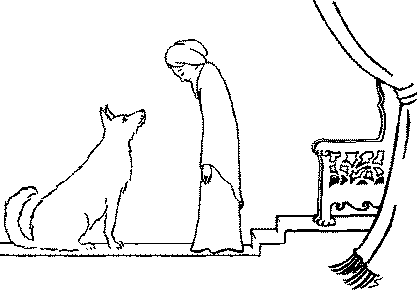
The Enlightenment Being replied, “Arise
my lord, I have no desire for a human crown. If you wish to show your respect
for me, you should be a just and merciful ruler. It would help if you begin to
purify your mind by practising the ‘Five Training Steps’. These are to give up
entirely the five unwholesome actions: destroying life, taking what is not
given, sexual wrong-doing, speaking falsely, and drunkenness.”
The king followed the teachings of the wise
dog king. He ruled with great respect for all living beings. He ordered that
whenever he ate, all dogs, those of the palace and those of the city, were to
be fed as well. This was the beginning of the faithfulness between dogs and men
that has lasted to this day.
The moral is: Prejudice leads to injustice, wisdom leads to
justice.
Precepts (Character, morality
self-discipline) is lost everything is lost
COMPREHENSIVE
PALI COURSE
LESSON 11
Exercise 1
Translate
into English
1.
Devadatto kibbisakāi hutvā saṅghe dvayaṁ akāsi.
Taṁ
nissāya so ghoraṁ akusalanaṁ katvā.
Mahādukkhbhāgi ca hutvā vasī.
Having become the evil-doer Devadatta caused a
Split in the Holy Order. On account of that he
perpetrated heinous evil, and lived having becom
a sharer of great misery.
2.
Taptvā Buddhasāvakānaṁ, kibbisakārinaṁ pi so
mantī
hutvā, sayaṁ pi pāpaṁ katvāna apare pi pāpe
yojia, taṁ āgamma macchatrī issukī kāmakāmī
bhavitvāna, maritvā nirayagāmi ahosi.
Except for the disciples of the
Awakened One, he
Became the councellor for evil-doers and after
Committing evil himself and inducing others in evil,
Because of that having become mean, envious and
Pleasure seeking, after death, he was hell-bound.
3.
Sañcicca kāyānupassī viharatha.
Tatheva
vedanāsu vedanānupassī hutvā yā yā vedan
upajjati sā sā oloketvā viharatha. Evameva citte
cittānupassī hutvā yaṁ yaṁ cittaṁ uppajjati taṁ taṁ
oloketvā vihataha. Dhammesu ca Dhammānupassī
hutvā yaṁ yaṁ nīvaranaṁ athavā yo yo bojjhaṅgo
upajjanati
taṁ taṁ oloketvā viharatha.
Having
deliberately become a contemplator of the
body in the body, dwell ye. Simillarly, having become
a contemplator of the feelings in the feelings, after
observing
whatever feeling arises, dwell ye.
Likewise, having become a contemplator of the
thoughts
in the thoughts, after observing whatever
thoughts
arises; and having become acontemplator
of
the mental factors in the mental factors, after
observing
whatever mental impediments or whatever
awakenment
factors arise, dwell ye.
4.
Evarūpena satiyaṁ ṭhatvā sampajaññañca
Uppādevatā Dhammā nurakkhino hotha.
In this way having become established in
Mindfulness
and having aroused clear
Comprehension,
ye become preservers of truth.
5.
Sakko devānamindo sasini masinā sasakarūpaṁ
likkhitvā, Bodhisattassa silaguṇaṁ dassetuṁ,
lokasiṁ janesu saddhaṁ uppādetuṁ ca
sakkaccakāri ahosi.
Having inscribed the figure of a hare with ink on the
moon,
to show the moral virtue of the would-be-
Buddha
, and to arouse faith among people in the
World,
‘Sakka’, the king of gods, became jealous.
